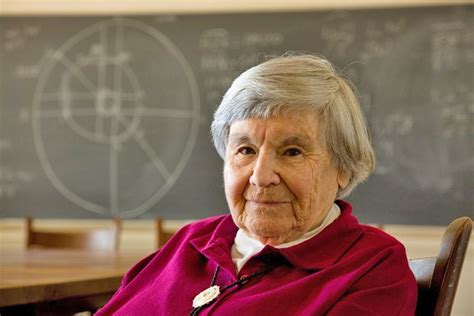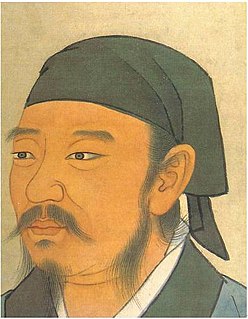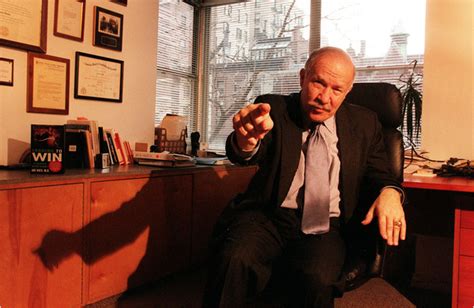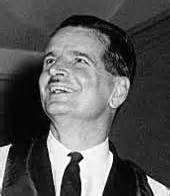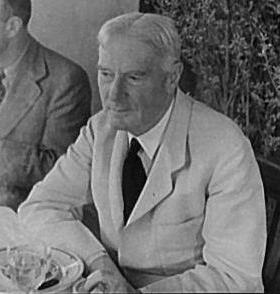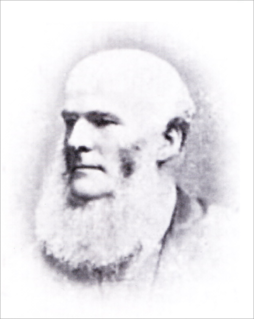Top 1200 Teaching Others Quotes & Sayings - Page 8
Explore popular Teaching Others quotes.
Last updated on December 19, 2024.
Some people learn from mistakes and don't repeat them,
Others try to block the memories and just delete them.
But I keep 'em as a reminder they're not killing me,
And I thank God for teaching me humility.
Son, remember when you fight to be free
To see things how they are and not how you like em to be.
Cause even when the world is falling on top of me,
Pessimism is an emotion, not a philosophy.
Knowing what's wrong doesn't imply that you right,
And it's another when you suffer to apply it in life.
But I'm no rookie...
And I'm never gonna make the same mistake twice, pussy.
Imitation is very easy, and the whole culture and society depends on imitation. Everybody is telling you how to behave, and whatsoever they are teaching you is nothing but imitation. Religious people - the so-called religious people, the priests, the theologians - they are also teaching you, `Be like Jesus, be like Buddha, be like Krishna.` Nobody ever tells you, `Just be yourself` - nobody. Everybody is against you, it seems. Nobody allows you to be yourself, nobody gives you any freedom. You can be in this world, but you must imitate somebody.
No one who passively endures an injustice against himself has the material in him to struggle for the rights of others. The one who patiently forbears becomes an accessory to the injustice done to others. He who resists the injustice which he himself meets can open up the way to a higher right for others.
It’s in our interest to take care of others. Self-centrednes s is opposed to basic human nature. In our own interest as human beings we need to pay attention to our inner values. Sometimes people think compassion is only of help to others, while we get no benefit. This is a mistake. When you concern yourself with others, you naturally develop a sense of self-confidence . To help others takes courage and inner strength.
You will be educated, which means that you will be interested where others are bored, that you will notice unities where others experience randomness, and that you will intend meanings where others are just spouting words. For exactly that is supposed to be the result of becoming literate: The world becomes a thick texture of significance that you know how to “access.
Most men are followers, and implicitly rely upon the judgment of others. They mistake solemnity for wisdom, and regard a grave countenance as the title page and Preface to a most learned volume. So they are easily imposed upon by forms, strange garments, and solemn ceremonies. And when the teaching of parents, the customs of neighbors, and the general tongue approve and justify a belief or creed, no matter how absurd, it is hard even for the strongest to hold the citadel of his soul. In each country, in defence of each religion, the same arguments would be urged.
In order to judge of the inside of others, study your own; for men in general are very much alike; and though one has one prevailing passion, and another has another, yet their operations are much the same; and whatever engages or disgusts, pleases or offends you, in others, will, mutatis mutandis, engage, disgust, please, or offend others, in you.
In the art of teaching, we recognize that ideas and insights need to cook over a period of time.
Sometimes the student who is least articulate about expressing the ideas is in fact the one who is absorbing
and processing them most deeply. This applies as well to our own private learning of our art form; the
areas in which we feel most stuck and most incompetent may be our richest gold mine of developing
material. The use of silence in teaching then becomes very powerful.
My primary relationship is with myself- all others are mirrors of it. As I learn to love myself, I automatically receive the love and appreciation that I desire from others. If I am commited to myself and to living my truth, I will attract others with equal commitment. My willingness to be intimate with my own deep feelings creates the space for intimacy with another.
In wanting freedom we discover that it depends entirely on the freedom of others, and that the freedom of others depends on ours. . . I am obliged to want others to have freedom at the same time that I want my own freedom. I can take freedom as my goal only if I take that of others as a goal as well.
In undeveloped social groups, we find very little formal teaching and training. Savage groups mainly rely for instilling needed dispositions into the young upon the same sort of association which keeps adults loyal to their group. They have no special devices, material, or institutions for teaching save in connection with initiation ceremonies by which the youth are inducted into full social membership. For the most part, they depend upon children learning the customs of the adults, acquiring their emotional set and stock of ideas, by sharing in what the elders are doing.
It is important to reflect on the kindness of others. Every aspect of our present well-being is due to others' hard work. The buildings we live and work in, the roads we travel, the clothes we wear, and the food we eat, are all provided by others. None of them would exist but for the kindness of so many people unknown to us.
The knowledge exists by which universal happiness can be secured; the chief obstacle to its utilization for that purpose is the teaching of religion. Religion prevents our children from having a rational education; religion prevents us from removing the fundamental causes of war; religion prevents us from teaching the ethic of scientific cooperation in place of the old fierce doctrines of sin and punishment. It is possible that mankind is on the threshold of a golden age; but, if so, it will be necessary first to slay the dragon that guards the door, and this dragon is religion.
Dharma has several connotations in South Asian religions, but in Buddhism it has two basic, interrelated meanings: dharma as 'teaching' as found in the expression Buddha Dharma, and dharma as 'reality-as-is' (abhigama-dharma). The teaching is a verbal expression of reality-as-is that consists of two aspects-the subject that realizes and the object that is realized. Together they constitute 'reality-as-is;' if either aspect is lacking, it is not reality-as-is. This sense of dharma or reality-as-is is also called suchness (tathata) or thatness (tattva) in Buddhism.
Therefore only through education does one come to be dissatisfied with his own knowledge, and only through teaching others does one come to realize the uncomfortable inadequacy of his knowledge. Being dissatisfied with his own knowledge, one then realizes that the trouble lies with himself, and realizing the uncomfortable inadequacy of his knowledger.
Every day, think as you wake up, today I am fortunate to be alive, I have a precious human life, I am not going to waste it. I am going to use all my energies to develop myself, to expand my heart out to others; to achieve enlightenment for the benefit of all beings. I am going to have kind thoughts towards others, I am not going to get angry or think badly about others. I am going to benefit others as much as I can.
It needs more than ever to be stressed that the best and truest educators are parents under God. The greatest school is the family. In learning, no act of teaching in any school or university compares to the routine task of mothers in teaching a babe who speaks no language the mother tongue in so short a time. No other task in education is equal to this. The moral training of the children, the discipline of good habits, is an inheritance from the parents to the children which surpasses all other. The family is the first and basic school of man.
Helping others entails learning how you are helped. In order to heal others, you must learn to heal yourself. Learning how to give to yourself is part of learning how to give to others. If you are stingy with yourself, you will be stingy with others. When you understand how everything is given to you, you will be able to give everything to others.
If you wish others to respect you, you must show respect for them...Everyone wants to feel that he counts for something and is important to someone. Invariably, people will give their love, respect, and attention to the person who fills that need. Consideration for others generally reflects faith in self and faith in others.
Human beings are not intrinsically selfish, which isolates us from others. We are essentially social animals who depend on others to meet our needs. We achieve happiness, prosperity and progress through social interaction. Therefore, having a kind and helpful attitude contributes to our own and others' happiness.
Life is a system of relations rather than a positive and independent existence; and he who would be happy himself and make others happy must carefully preserve these relations. He cannot stand apart in surly and haughty egoism; let him learn that he is as much dependent on others as others are on him.
It is indeed better (as no one ever could deny) that men should be led to worship God by teaching, than that they should be driven to it by fear of punishment or pain; but it does not follow that because the former course produces the better men, therefore those who do not yield to it should be neglected. For many have found advantage (as we have proved, and are daily proving by actual experiment), in being first compelled by fear or pain, so that they might afterwards be influenced by teaching, or might follow out in act what they had already learned in word.
Foolish, selfish people are always thinking of themselves and the result is always negative. Wise persons think of others, helping them as much as they can, and the result is happiness. Love and compassion are beneficial both for you and others. Through your kindness to others, your mind and heart will open to peace.
And now listen carefully. You in others-this is your soul. This is what you are. This is what your consciousness has breathed and lived on and enjoyed throughout your life-your soul, your immortality, your life in others. And what now? You have always been in others and you will remain in others. And what does it matter to you if later on that is called your memory? This will be you-the you that enters the future and becomes a part of it.
When we desire to be a blessing, we find that there are many ways in which we can bless others. We can give material goods to others, and we can also offer them the benefit of our experience. People who have faced and overcome challenges with alcohol and drugs often involve themselves in helping others who are experiencing similar difficulties. They understand the value of overcoming the problem. In every area of the human experience, we may find those precious ones who are able and willing to be a blessing to others.
What is all wisdom save a collection of platitudes? Take fifty of our current proverbial sayings—they are so trite, so threadbare, that we can hardly bring our lips to utter them. None the less they embody the concentrated experience of the race, and the man who orders his life according to their teaching cannot go far wrong. How easy that seems! Has any one ever done so? Never. Has any man ever attained to inner harmony by pondering the experience of others? Not since the world began! He must pass through the fire.
The traditional paradigm of parenting has been very hierarchical, the parent knows best and very top down. Conscious parenting topples [this paradigm] on its head and creates this mutuality, this circularity where both parent and child serve each other and where in fact, perhaps, the child could be even more of a guru for the parent .... teaching the parent how the parent needs to grow, teaching the parent how to enter the present moment like only children know how to do.
Emotional dependence is the opposite of emotional strength. It means needing to have others to survive, wanting others to "do it for us," and depending on others to give us our self-image, make our decisions, and take care of us financially. When we are emotionally dependent, we look to others for our happiness, our concept of "self," and our emotional well-being. Such vulnerability necessitates a search for and dependence on outer support for a sense of our own worth.
Older boys often asked me to teach them “some bad words in your language”. At first I politely refused. My refusal merely increased their determination, so I solved the problem by teaching them phrases like 'man kharam' which means “I'm an idiot”. I told them that what I was teaching them was so nasty that they would have to promise never to repeat it to anyone. They would then spend all of recess running around yelling “I'm an idiot! I'm an idiot!”. I never told them the truth. I figured someday, somebody would
We have the Bible in our hands; but how little we know of its teaching! And how little are we governed by it! We go on, from week to week, year to year, with things which have no foundation whatever in its pages- yea, with things utterly opposed to its teaching; and, all the while, we boast of having the Scriptures, just like the Jews of old, who made their boast of having the oracles of God, while those very oracles condemned themselves and their ways, and left them without a single plea.
Whereas disinfecting Christians involves isolating them and teaching them to be good, discipling Christians involves propelling Christians into the world to risk their lives for the sake of others. Now the world is our focus, and we gauge success in the church not on the hundreds or thousands whom we can get into our buildings but on the hundreds or thousands who are leaving our buildings to take on the world with the disciples they are making
If we don't love ourselves, we would not love others. When someone tell you to love others first, and to love others more than ourselves; it is impossible. If you can't love yourselves, you can't love anybody else. Therefore we must gather up our great power so that we know in what ways we are good, what special abilities we have, what wisdom, what kind of talent we have, and how big our love is. When we can recognize our virtues, we can learn how to love others.
Most people have a hard time confronting their weaknesses in a really straightforward, evidence-based way. They also have problems speaking frankly to others. Some people love knowing about their weaknesses and mistakes and those of others because it helps them be so much better, while others can't stand it.




